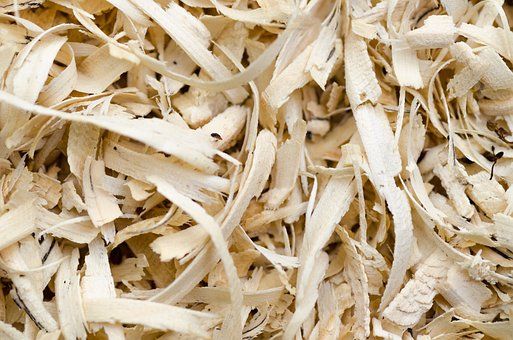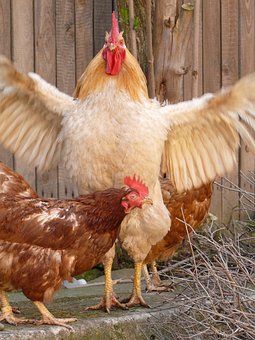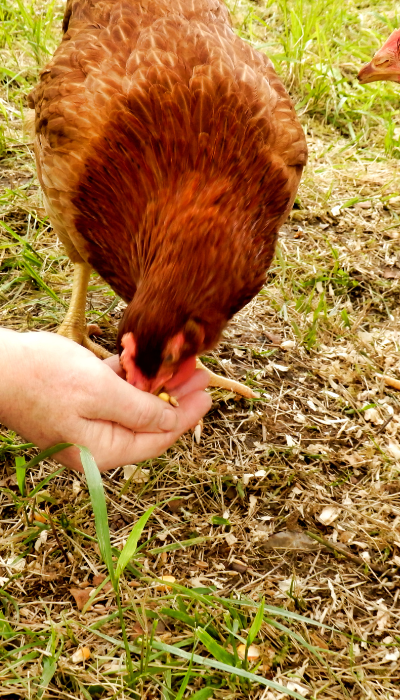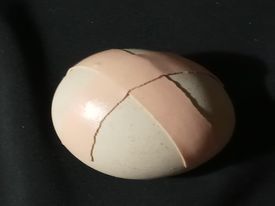It seems that there are two thoughts about the deep litter method in your chicken coop, the one hand loves it as the other believe it to be totally unsanitary. Lets leave the decision up to you.
The deeper meaning of a coop is less work, warmer housing in the winter, but composting your manure in your coop. Because if you unwillingly make a mistake in the coop with the deep litter method it could definitely make your chickens sick if not worth and stinky. Some say beneficial microbes will consume and destroy bad bacteria that could make your flock sick so your job as a keeper is to insure that the good ones overtake the bad ones.
If you like the sound of that go for it.
One pack of the cheapest horse pine shavings is around $6 and up, I love this stuff in my run since it produces plenty of insects for the chickens to dig up. In my coop I have a bear vinyl floor that I scrape off every other day or whenever I can, the roosts I manage every day.
What wood is toxic to chickens?
Things to Avoid by: Petkeen
While you can use pine or cedar to make your chicken coop, both pine and cedar shavings can be toxic to chickens. Do not use these as bedding inside your coop. Also, make sure you are only using safe, non-toxic paints and stains on your chicken coop.
More than less, this deep litter method keeps the chickens off the ground and you need at least eight inches of carbon-rich bedding, such as straw, or hemp bedding for it to be significant.
I have a bucket in the corner under the table for the manure I collect every day and when full I throw it on my compost bed that the chickens turn over gladly for me.
Benefits:
- Less cleaning (so they say)
- Warmer in the winter (by a few degrees due to microbes with proper ventilation)
- Beneficial garden compost (high in nitrate - wait at least 3-6 mts to use)
- Healthier flock (if done right)
Concerns:
- Expense (about $6 per 19 lbs. at Rual King and you need at least 20 to start)
- Potential danger if not done right
- Initial labor (you need a lot of packages semi heavy and large and repeat every six months, and add monthly a couple of inches of shavings)
- If you want to use it for your garden - the manure has six months old poop, week old poop and yesterday poop, so, regardless, you waited six months for the garden compost from your coop and you still have to wait another six months for it to age because you don't know which little poop is one day old or six months because of the risk to kill your new veggies from the high nitrate.
- Hens may lay their eggs anywhere on the shavings on the floor and the eggs could get buried, old, and break, the bacteria could cause serious problems and the stink I don't even want to think about. (my husband told me a story as a kid they bought fresh eggs and one fell out under the car seat, they discovered later, when if finally broke and made the car stink so bad that they could not get the smell out no matter what they used and ended up having to total the car because nobody wanted to buy it)
How to start a deep litter coop
You must totally and completely empty and scrub down the coop to start from scratch.
Place a layer of 4 inches of shavings or hemp bedding on the flooring.
Most people use pine shavings because they are cheaper, yes they are, but also attracts a lot of bugs and can be toxic that is why I use them in the run. Hey or straw could get moldy and in fact it did in a nest one time, it might have gotten some moisture from too much rain.
You still need to turn over the shaving twice per week.
Some people suggest to throw treats on the shaving to help turning it over to save time and work, but isn't that everything we learned not to do to place food on the poop?
If you see any wet and dirty spots you need to add more shavings, so at least one - two inches per month. You want to have an 8 inch ground quickly for best success.
If you smell a strong ammonia its time to clean out the whole coop usually, every six months.
It is also suggested to sprinkle ammonia killer products for a nicer smell etc. on your shavings, just another cost added and might be chemicals if not careful.
Opinion:
We live in Florida where it isn't too cold, so we do not need a deep litter method for that purpose. If you need added heat because you live up north read up on the Charcoal Coop Insulation.
With an empty coop floor it is easy to see where the poop culprits house and simply scoop them up and with a vinyl flooring, concrete, or resin flooring you just use water pressure to deep clean when need be.
You can sprinkle herbs all over to keep your coop and nests pests free and smelling good. The chickens could even eat the herbs if they wanted to. The CDC even stated that "Prolonged inhalation of calcined diatomaceous earth may cause silicosis with scarring of the lungs, cough, and shortness of breath." So there you have it.
Always go back to nature, what did the chickens eat, drink, and sleep in before the human hand added catastrophic results to our chickens' live.
In my eyes, the deep litter method leads to more cost, more work, more danger, and the same amount of time and reasons to use the compost for our garden.
It doesn't mean I want to discourage anybody to use the Deep Litter Method, if you love the shavings on the floor go for it.
We are affiliated with Amazon and receive a small commission for purchases that supports our blog and Mission. Thank you.
Please help our community grow by signing up for our weekly Newsletter, free e-books, and other insights.
Have a fantastic chicken day my friends. Blessings,
Liane
For all other chicken needs please click below
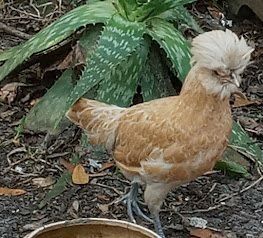
Click below for your first free e-cookbook for joining our community. Thank you.

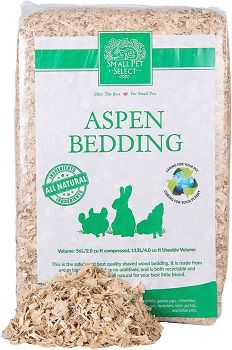
Premium Natural Aspen Bedding, Animal Bedding for Small Indoor and Outdoor Pets, Made in The USA, Jumbo Size 113 L Pack
Small Pet Select - $34.99
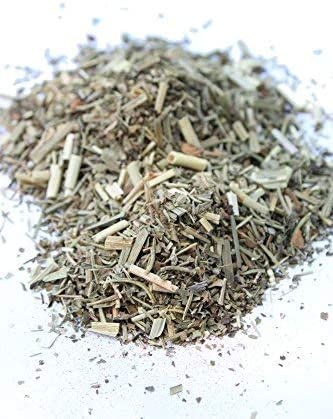
Backyard Chicken Coop Herbs: Keep Flies, Ants, Spiders, Mice, Rats Away Naturally PestsBGone (20 Ounce)
Pampered Chicken Mama - $29.99
The end.

